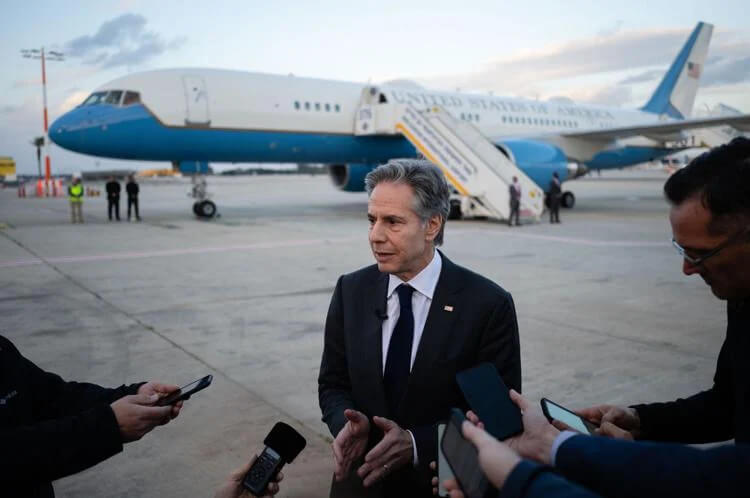By: Casey Harper | The Center Square
President Joe Biden is under fire for waiving more sanction requirements for Iran even as Iranian-backed militant terrorist groups continue to launch attacks on Israel as well as U.S. and other ships in the Red Sea, hiking costs for Americans.
Several U.S. Senators are criticizing Biden, accusing him of an “ongoing strategy of appeasement” to the Iranian regime.
Sen. Tim Scott, R-S.C., led the letter with a dozen other Senators to Treasury Secretary Janet Yellen and Secretary of State Tony Blinken raising concerns about the administration’s decision to issue a waiver last month allowing Iran to access billions of dollars via electricity sold to Iraq.
The Senator's also point out that other Iranian-backed groups, the Houthis, have significantly disrupted global trade and attacked U.S. servicemembers with their ongoing attacks on ships in the Red Sea. Those attacks have disrupted global supply chains and made goods more expensive for Americans.
Three U.S. troops were killed and more than 30 injured in a drone strike in Jordan earlier this year, likely conducted by Iranian-backed militants.
“It is unfathomable that this is the context in which the administration determined that it was within the national security interest of the United States to waive sanctions on restricted Iranian funds, making them more accessible to the regime,” the letter said. “If we want to actually restore deterrence in the region, those funds should be placed further out of Iran’s reach, not closer.”
The waivers for Iran are not new, but the Senators argue given the ongoing bad behavior from Iran, more waivers only encourage the activity.
“The United States should be restricting Iran's access to currency abroad,” the letter said. “Instead, your administration is expanding it, all while continuing to share limited information on a strategy to restore deterrence in the Middle East with Congress or the American people.”
The conflict in the region began on Oct. 7 when Hamas militants entered Israel and killed more than a thousand Israelis, mostly civilians, often in a brutal manner and involving rape.
Recently, an explosion in Syria destroyed the Iranian consulate there and killed twelve, including two Iranian generals and a leader of Hezbollah, the Iranian backed group conducting attacks on northern Israel.
It is unconfirmed who carried out the attack, but Iran and others have blamed Israel. Iran’s leadership has pledged a response.
The National Union for Democracy in Iran released a new report arguing that Iran has advanced its nuclear capabilities since Biden took office.
“We have two primary concerns with the decision to renew the waiver. First, the waiver makes restricted Iranian funds more accessible to the Ayatollah’s regime, at a time when Iranian-backed aggression in the region is at a peak,” the letter said. “Second, the administration appears to be disregarding congressional intent that any payments made to Iran remain severely restricted. “
Senators Mike Crapo, R-Idaho, Katie Britt, R-Ala., Kevin Cramer, R-N.D., Chuck Grassley, R-Iowa, John Cornyn, R-Texas, Marco Rubio, R-Fla., Ted Cruz, R-Texas, Tom Cotton, R-Ark., Todd Young, R-Ind., Rick Scott, R-Fla., Ted Budd, R-N.C., and Pete Ricketts, R-Neb., signed the letter.









